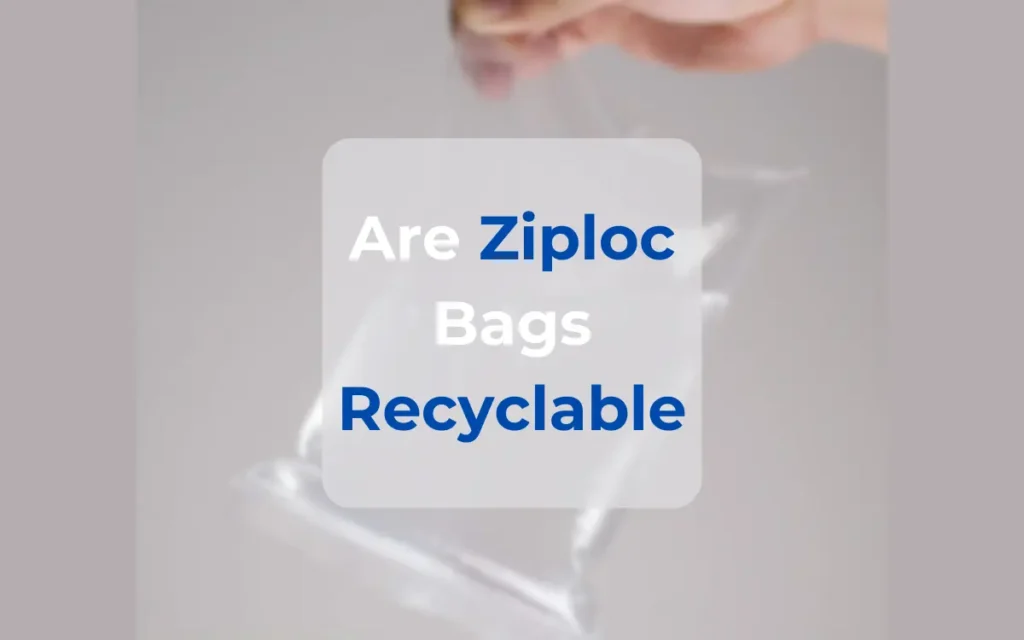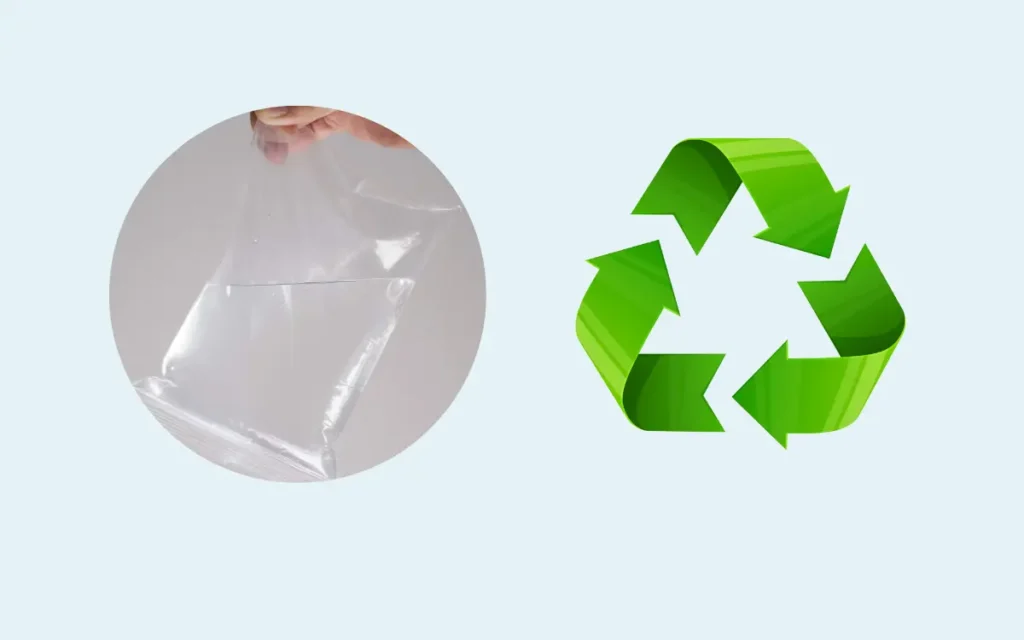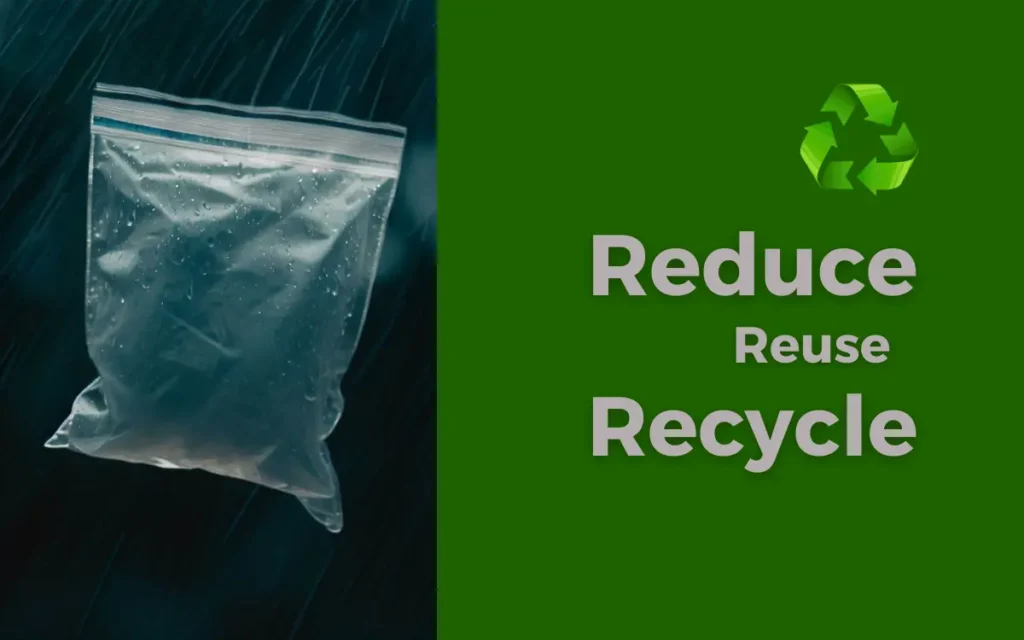
Introduction
Every day, millions use Ziploc bags. We store sandwiches, carry travel essentials, and organize small items with them. Their convenience is undeniable. However, a significant question arises: are ziploc bags recyclable?
Well, today’s consumers are increasingly eco-conscious. It’s vital to understand how we can recycle the products we use often.
This article will explore Ziploc bags and their recyclability.
We aim to guide you towards responsible and sustainable choices. After all, adopting greener habits begins with knowledge.
Let’s get started.
Which Materials Used for Ziploc Bags

Understanding what everyday items like Ziploc bags are made of is intriguing. It satisfies our curiosity. Moreover, this knowledge helps us make informed decisions.
We can better decide how to use and dispose of these bags. So, what exactly are Ziploc bags made of?
Primary Material: Polyethylene
What is Polyethylene?
Polyethylene is a common type of plastic. It’s used in many products, from packaging to toys. Its lightweight nature is an advantage.
Also, it resists moisture well. That’s why it’s a favored choice for Ziploc bags.
Why Polyethylene?
One of the main reasons this material is used for Ziploc bags is because of its flexibility. Polyethylene allows the bag to be sealed and reopened multiple times without losing its integrity.
Additionally, its impermeable nature ensures that the contents remain dry and uncontaminated.
Additives and Other Components:
Ensuring Safety and Clarity:
Polyethylene is the main ingredient in Ziploc bags. However, they might also have additives. These additives improve the bag’s clarity.
They also make the bags safe for storing food. Clear bags are important because you can easily see what’s inside.
Also, ensuring their safety means the food stays fresh and uncontaminated.
Improving Strength:
Some bags are made for heavy-duty tasks. They can store larger food portions or be used for traveling.
To make them stronger, these bags might have extra polymers. These polymers increase their strength and durability.
Why You Should Recycle Ziploc Bags?

The world where your small actions lead to significant environmental impacts. Recycling these bags might seem like a minor step, but it’s a meaningful one. These handy bags, often tucked away in drawers or backpacks.
Recycling these bags reduces plastic waste in landfills. This helps our environment. These bags are made from polymers. These polymers take a long time to break down. Through proper recycling, these bags can be reused. They are derived from precious resources such as petroleum. Petroleum is a main ingredient in plastics. When we recycle, we save this resource. This saves energy. It also lessens the harm from extracting raw materials.
Are Ziploc Bags Recyclable?

Yes, Ziploc bags are recyclable.
To begin with, not all plastic items end up in the same recycling stream. The good news is that some facilities recycle Ziploc bags. These bags are accepted at places that take plastic films. These bags consist of low-density polyethylene (LDPE).
Before recycling them, check if your local program accepts plastic films. If not, don’t worry. Many stores have bins for these plastic films, including Ziploc bags. On your next grocery trip, bring your used Ziploc bags. Make sure they’re clean and dry. Then, drop them off.
Are Ziploc Bag Environmentally Friendly

No, Ziploc bags are not entirely environmentally friendly. Here’s why:
Firstly, these bags are made of low-density polyethylene (LDPE), a type of plastic. While they can be recycled, many areas don’t offer facilities that accept this kind of plastic. Consequently, many of these bags end up in landfills where they take a long time to break down.
Secondly, the production of plastic, including LDPE, contributes to greenhouse gas emissions. These emissions play a role in climate change, a pressing global issue.
On a positive note, it can be reused. Instead of tossing them after one use, you can wash and reuse them multiple times. This can reduce the total number of bags you might use in a year.
Tips to Reuse Ziploc Bag
Reusing these bags not only benefits the environment but also saves you money. Below are some effective and practical ways to reuse these bags:
1. Food Storage
Store Leftovers: Instead of using a fresh bag every time, wash and reuse these bags to store leftovers. By doing this, you’ll reduce waste and keep your food fresh.
2. Organization
Sort Craft Supplies: Organize small craft items, like beads or buttons, in reused Ziploc bags. It’s a simple yet effective way to keep things in order.
3. Travel Companion
Pack Toiletries: When you travel, reused Ziploc bags are great for packing toiletries. They can prevent spills and help you breeze through airport security checks.
4. Kitchen Helper
Homemade Ice Packs: Fill a reused Ziploc bag with water, freeze it, and you have a makeshift ice pack ready for minor injuries or to keep your lunchbox cool.
5. Gardening Aid
Seed Storage: If you’re a gardening enthusiast, use Ziploc bags to store seeds. Label the bag with the seed type and date, ensuring you have them ready for the next planting season.
Bottom Line
In conclusion, while Ziploc bags are recyclable. Their journey to recycling isn’t always direct. Being informed and proactive can make a significant difference. Just make sure these bags get a new lease on life.
So, Have you ever creatively repurposed a Ziploc bag in your daily life? Share your unique ideas and inspire others to reduce waste!






